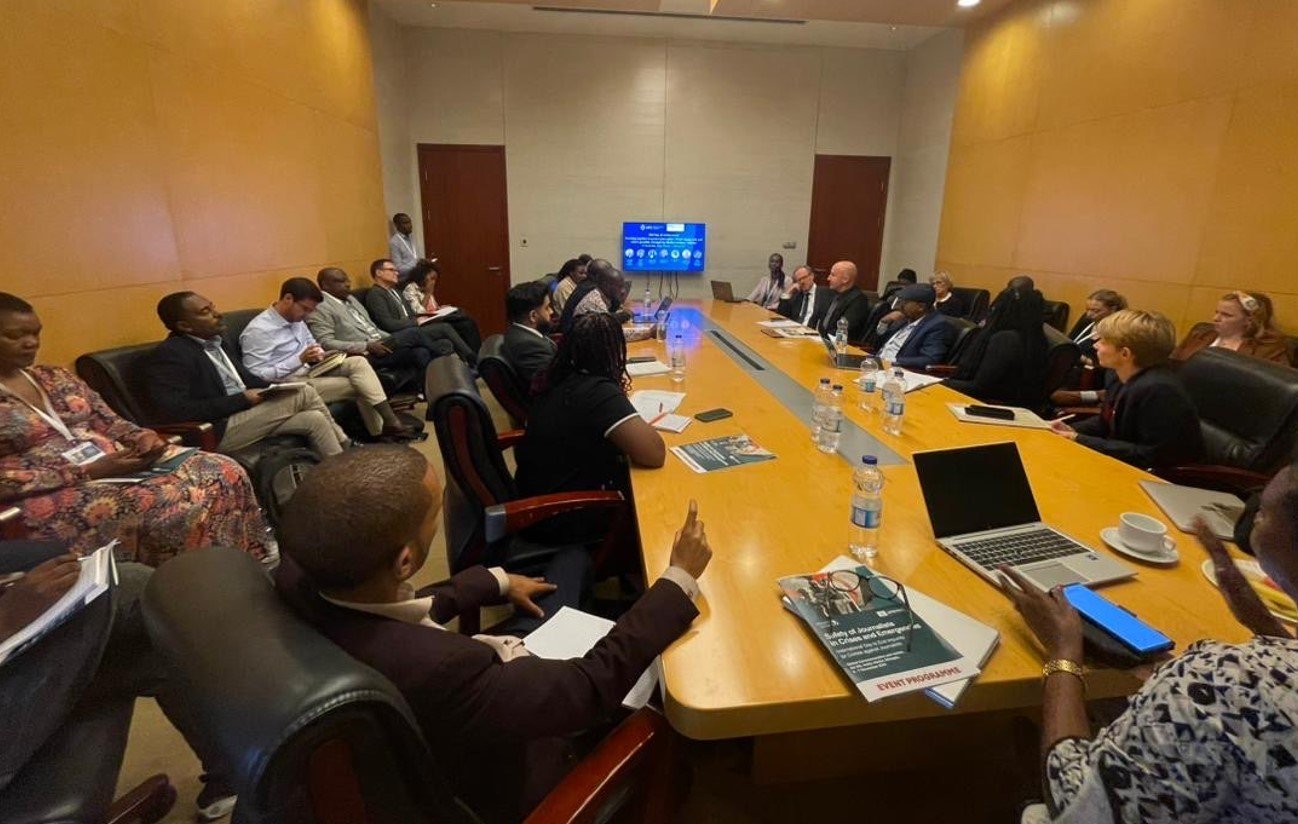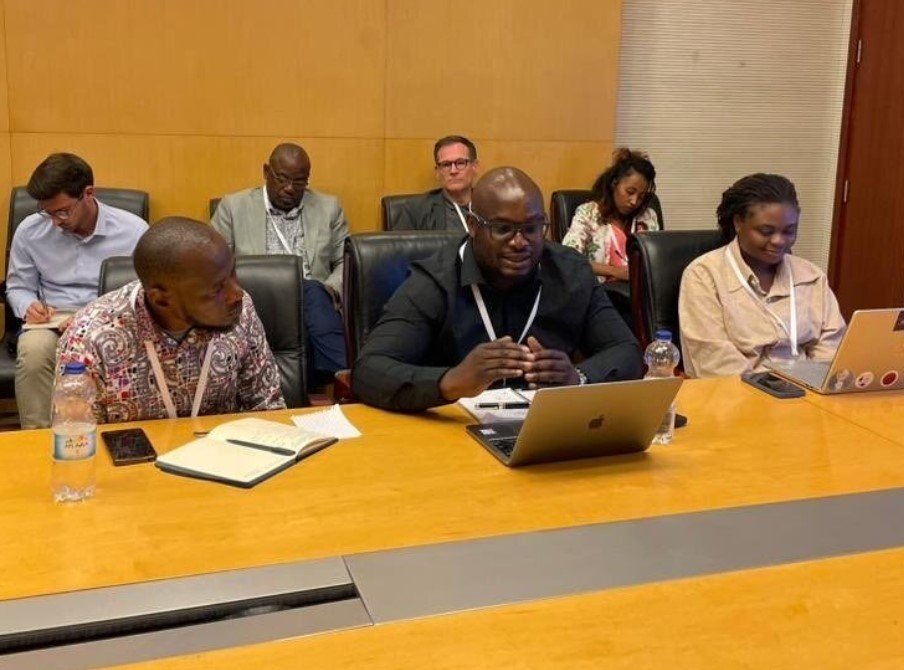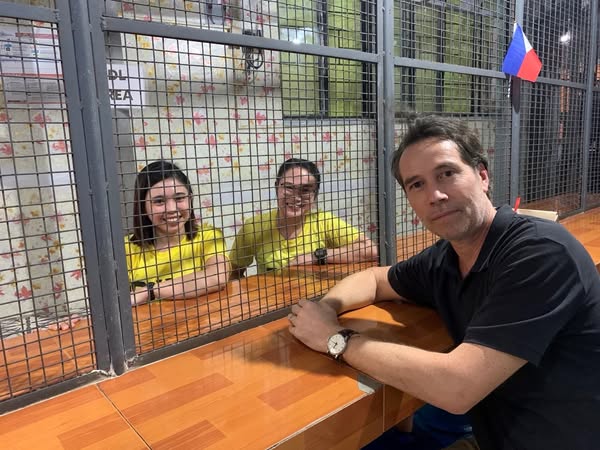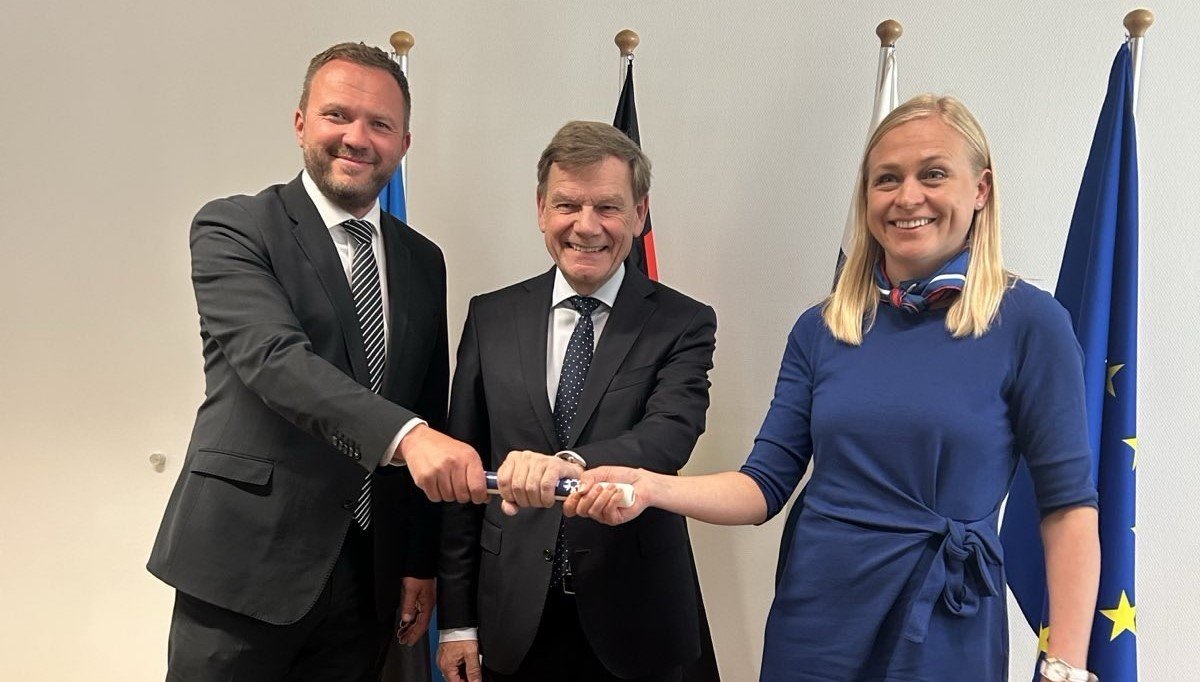
At the 2024 conference to mark the International Day to End Impunity for Crimes against Journalists (IDEI), the Media Freedom Coalition showcased a range of initiatives to protect journalists – including actions by embassies, a national safety mechanism for journalists, and sourcing expert legal advice for governments.
The MFC session was co-organised with the German Embassy to Ethiopia and moderated by Nompilo Simanje of the International Press Institute. IDEI falls each year on November 2nd, while the 2024 Global Commemoration took place at the African Union (AU) headquarters in Addis Ababa, Ethiopia, on November 6-7, and was hosted by the AU and organised by UNESCO and the AU.
Opening the MFC session, Dr. Ferdinand von Weyhe, the Deputy Head of Mission at the German Embassy, emphasised the critical importance of the safety of journalists “to give the world, all of us, the knowledge of what is going on.”
He continued, “I think it is fundamental to have qualitative journalism, observing fact-checking and ethical reporting standards, and to have the freedom and safety of journalists to do their job … it is a core pillar for our democracy.”
MFC member Ghana was represented by Etornam Maabla Macarthy, Assistant Programme Officer at Ghana’s Ministry of Information. Ms. Macarthy is the Officer in Charge for Ghana’s Coordinated Mechanism for the Safety of Journalists, which is implemented by the Ministry of Information in collaboration with the National Media Commission.
The Coordinated Mechanism allows various stakeholders in Ghana – within and outside government – to work together to uphold the safety of journalists and track specific cases.
Ms. Macarthy said, “I’d just like to encourage other people to adopt the coordinated mechanism for safety of journalists, because it’s working well in Ghana. So if your country is not yet into this, you can invite us for discussions on how Ghana does this. Very happy to come and help with the framework of how we tackle safety of journalist issues in Ghana.”
The value of collaboration and information exchange was also emphasized by Fitihawok Yewondwossen, the Chairperson of the General Assembly of the Editors’ Guild of Ethiopia and Vice President of the Eastern Africa Editors’ Society.
He described an initiative to bring journalists and media workers together from across Ethiopia: “We are trying to bring together journalists all over the country because we observe that there is some polarisation among media actors. So we arranged a breakfast session every week so that journalists could come together, discuss their challenges, share experience they face as a journalist.”

Dr. Tabani Moyo, IFEX Convenor and MISA Regional Director, also spoke on the panel. He highlighted how collaboration demonstrates solidarity, which is vital in the face of anti-democratic forces: “I think this is the underpinning philosophy that whatever we do is guided by the sense of solidarity. That if one is down, we are all standing up to ensure that we continue moving forward.”
Catherine Anite, a member of the High Level Panel of Legal Experts on Media Freedom, and Founding Director of the Freedom of Expression Hub in Uganda, was also present to explain how the High Level Panel can support states with legal reforms. She explained how the High Level Panel can be approached by any member country of the MFC with a request for pro bono legal assistance.
Ms. Anite also explained the importance of supporting the justice sector to be able to handle cases with a media freedom dimension. She said, “We normally look at skilling journalists, but then we leave the lawyers and the judges who are supposed to defend and enforce media rights. We need more judges … who understand media freedom. Who, when cases come before them, are able to adjudicate them excellently.”
Panellists also discussed the role embassies can play in protecting media freedom, and the range of activities they can undertake, such as trial monitoring, public and private diplomacy, and providing funding for media initiatives.
William Holton, Public Affairs Officer at the U.S. Mission to the African Union, highlighted the ongoing importance of this work in the context of ongoing impunity for crimes against journalists. He said, “of the 1700 journalists who have been killed over the past three decades, only 1 in 10 of the perpetrators of those crimes were actually held responsible … that’s pretty shocking.
“To protect journalists we need to make sure that the laws are there, and that they’re being enforced. That’s really what can create that environment of safety.”



